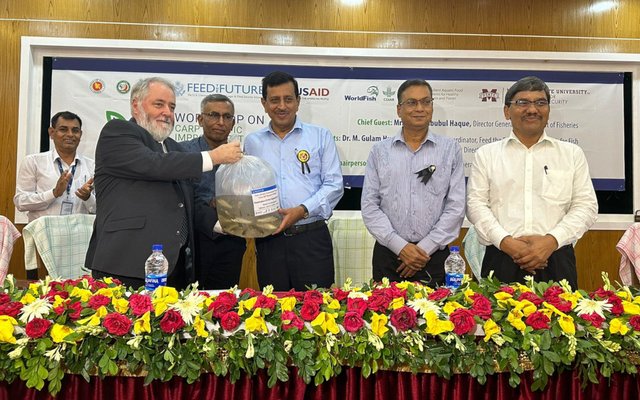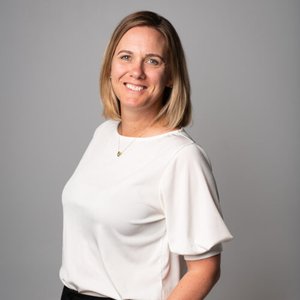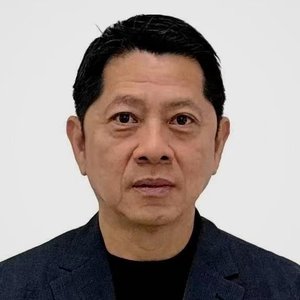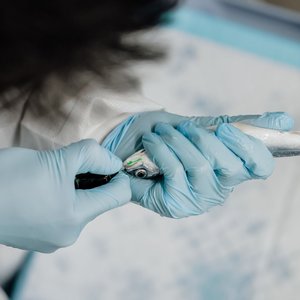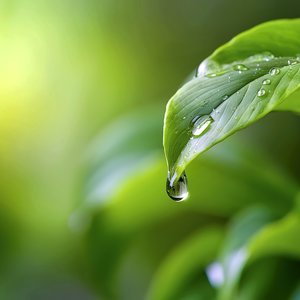The Bangladesh Fisheries Research Institute (BFRI) received the fast-growing WorldFish Generation 3 (G3) rohu, supported by Feed the Future Innovation Lab for Fish funding in recent years, during the day-long workshop held on August 8, 2023.
“It is indeed a remarkable event to have this genetically improved strain of rohu for its necessary validation and comparative evaluation with BFRI’s recently evolved and released Subarna Rohu strain,” said Yahia Mahmud, director general for BFRI.
The G3 rohu strains were released and grown in 19 hatcheries for an on-farm trial in 2022, and the G3 rohu trials averaged 37% higher growth than the conventional rohu strains. Subsequently, catla and silver carp strains were introduced for genetic stock improvement using similar selective breeding techniques.
At the same time, BFRI also initiated a rohu genetic improvement program using selection techniques. Genetically improved G1, G2, G3, and G4 generations of rohu have been developed by BFRI, and the G4 rohu strain achieved 20.12% harvest weight over the existing strain. On June 10, 2021, the G4 improved generation of rohu was named Subarna Rohu by BFRI, which has been released for quality seed production to support carp polyculture among government and private hatcheries.
“The government of Bangladesh has a target to produce 8.6 million tons of fish per year by 2041,” Kh. Mahbubul Haque, director general of DoF said, “It is clear that much of this targeted production must come from aquaculture, so we will have to increase productivity. I believe the WorldFish G3 rohu and the BFRI Subarna Rohu will play a significant role in increasing aquaculture production in the coming years.”
The workshop – jointly organized by WorldFish, the Feed the Future Innovation Lab for Fish, and BFRI – was held at the Bangladesh Fisheries Research Institute in Mymensingh and brought together over 140 international and national participants from WorldFish, BFRI, Department of Fisheries (DoF), Bangladesh Agricultural University (BAU), non-governmental organizations (NGOs), and fish hatchery owners and farmers from Jashore, Rajshahi, and Mymensingh regions.


